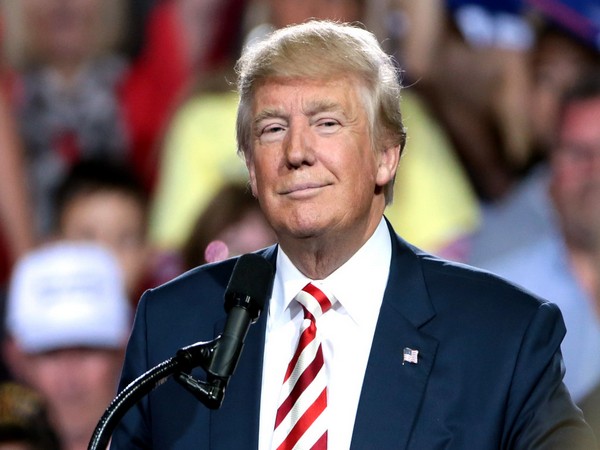Trump, top officials defend response to Russia bounty threat
“Many of us do not understand his affinity for that autocratic ruler who means our nation ill,” Schiff said. Senate Republicans who received their own briefing largely defended the president, arguing along with the White House that the intelligence was unverified.

- Country:
- United States
Criticized for inaction, President Donald Trump and top officials on Wednesday stepped up their defense of the administration's response to intelligence assessments that Russia offered bounties for killing U.S. troops in Afghanistan. Trump's national security adviser said he had prepared a list of retaliatory options if the intelligence proved true. Trump, meanwhile, called the assessments a “hoax” and insisted anew he hadn't been briefed on them because the intelligence didn't rise to his level. However, National Security Adviser Robert O'Brien said both the CIA and Pentagon did pursue the leads and briefed international allies.
“We had options ready to go,” O'Brien said on “Fox and Friends.” “It may be impossible to get to the bottom of it.” At a State Department news conference, Secretary of State Mike Pompeo said the situation was handled “incredibly well” to ensure the safety of U.S. troops. “We took this seriously, we handled it appropriately,” Pompeo said, without giving additional details. He said the administration receives intelligence about threats to Americans “every single day” and each is addressed.
Pompeo added that Russian activity in Afghanistan is nothing new and that Russia is just one of many nations acting there. He said that Congress has had similar information in the past and that he often receives threat assessments that don't rise to the level of a presidential briefing. Trump is coming under increasing pressure from lawmakers of both parties to provide more answers about the intelligence and the U.S. response or lack of one. Democrats who were briefed at the White House on Tuesday suggested he was bowing to Russian President Vladimir Putin at the risk of U.S. soldiers' lives.
The president has repeatedly said he wasn't briefed on the assessments that Russia offered bounties because there wasn't corroborating evidence. Those assessments were first reported by The New York Times, then confirmed to The Associated Press by American intelligence officials and others with knowledge of the matter. White House press secretary Kayleigh McEnany pointed to an individual who she said made the decision not to brief Trump, identifying the person as a female CIA officer with more than 30 years of experience. O'Brien said the person was a “career CIA briefer.” “The national security adviser agreed with that decision," McEnany said. "It was the right decision to make, and at this moment as I speak to you it is still unverified.” Trump remained defensive about the intelligence in early morning tweets, dismissing stories about it as “Fake News” made up to “damage me and the Republican Party.” Later in the day, Trump said in a television interview that It was a hoax and “we never heard about it” because intelligence officials didn't think it rose to that level.
“The intelligence people, many of them didn't believe it happened at all," Trump said on Fox Business. O'Brien said the intelligence wasn't brought to Trump's attention initially because it was unverified and there was no consensus among the intelligence community. But it's rare for intelligence to be confirmed without a shadow of a doubt before it is presented to senior government decision-makers.
The national security adviser echoed the recent White House talking point faulting not Russia but government leaders and the media for making the matter public. Senate Republicans appeared split on the matter, with several defending the president and saying that the Russian meddling wasn't new.
Others expressed strong concern. Sen. Patrick Toomey of Pennsylvania called for administration officials to address the entire Senate and answer questions. He said he had reviewed classified documents regarding the potential bounties “upon which recent news reports are based” and said the information raises many questions.
“If it is concluded that Russia offered bounties to murder American soldiers, a firm American response is required in short order,” Toomey said. Iowa Sen. Chuck Grassley had similar words on the Senate floor, saying that if the reports are true, "it demands a strong response, and I don't mean a diplomatic response.” House Democrats who were briefed at the White House on Tuesday questioned why Trump wouldn't have been briefed sooner and pushed White House officials to have the president make a strong statement. They said the administration should brief all members of Congress.
House Intelligence Committee Chairman Adam Schiff, one of the Democrats who attended the briefing, said it was “inexplicable” why Trump won't say publicly that he is working to get to the bottom of the issue and why he won't call out Putin. He said Trump's defense that he hadn't been briefed was inexcusable. “Many of us do not understand his affinity for that autocratic ruler who means our nation ill,” Schiff said.
Senate Republicans who received their own briefing largely defended the president, arguing along with the White House that the intelligence was unverified. Wisconsin Sen. Ron Johnson, chairman of the Homeland Security and Governmental Affairs Committee, said Trump “can't be made aware of every piece of unverified intelligence.”.
(This story has not been edited by Devdiscourse staff and is auto-generated from a syndicated feed.)
ALSO READ
Sports News Roundup: Basketball-Iowa-LSU most-watched women's college basketball game on record; NHL roundup: Wings defeat Lightning to halt road skid and more
Sports News Roundup: Basketball-Iowa-LSU most-watched women's college basketball game on record; ATP roundup: American qualifier upsets fifth seed in Morocco and more
Basketball-Record 18.7 million watch Iowa-South Carolina women's championship










